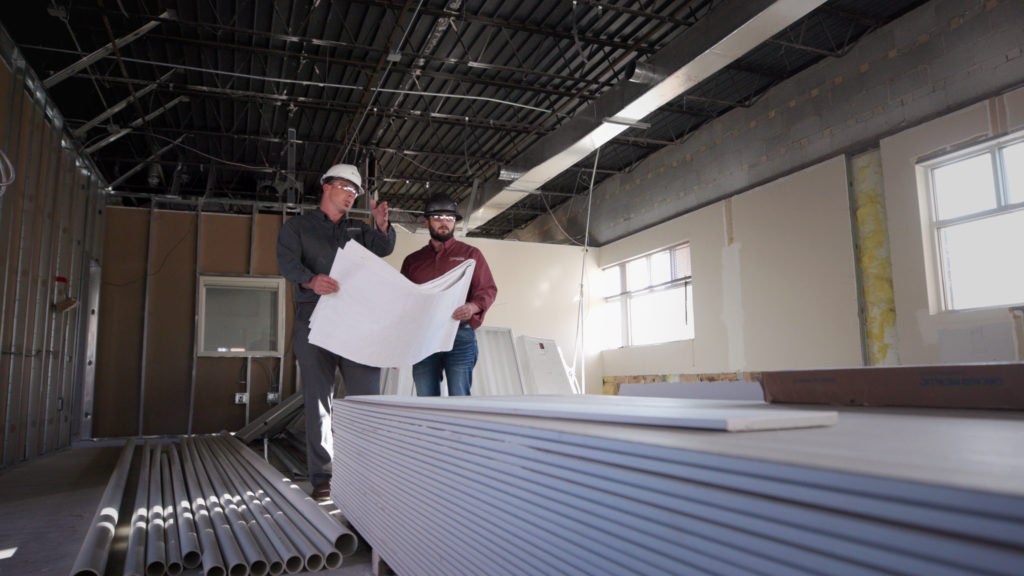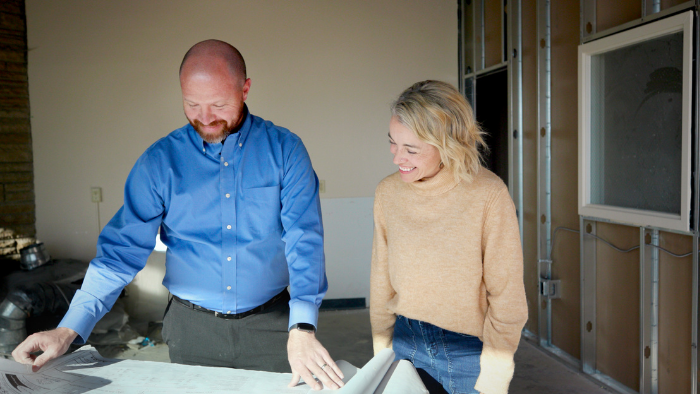
Are you struggling with maintaining your retail facility? It can be difficult with the public in and out of your facility, but we’re here to guide you through it.
Retail facility maintenance is a crucial aspect of managing physical stores, ensuring they remain clean, safe, and efficient for customers and employees.
Regular Maintenance for Retail Stores
Keeping retail stores in good condition ensures a positive shopping experience. This includes cleaning floors, restrooms, and windows, assembling and maintaining product displays, and stocking shelves, and other supplies. Store managers must arm maintenance managers with project management tools to track costs effectively and make better decisions regarding regular maintenance tasks.
Cleaning Protocols for Various Store Areas
Retail facilities management should establish clear cleaning protocols for different store areas. For instance:
Floors: Regular sweeping or vacuuming followed by mopping or scrubbing using appropriate cleaners.
Restrooms: Daily deep-cleaning of toilets, sinks, mirrors, and floors; replenishing soap dispensers and paper products as needed.
Glass surfaces (windows/doors): Cleaning with glass cleaner on a regular basis to maintain visibility and appearance.
Parking lots: Sweeping debris regularly; power washing periodically to remove dirt buildup from asphalt/concrete surfaces; repairing cracks/potholes as necessary.
Importance of Well-Maintained Product Displays
Eye-catching product displays can significantly impact sales figures in the competitive retail industry. Facility management work should prioritize maintaining these displays by:
Dusting: Removing dust accumulation on display fixtures helps prevent damage while enhancing visual appeal.
Regularly updating: Rotating products and refreshing display arrangements to keep the shopping experience fresh.
Maintaining lighting: Ensuring adequate illumination levels, replacing burnt-out bulbs/fixtures as needed, and adjusting accent lighting for optimal product presentation.
Addressing maintenance issues promptly: Repairing or replacing damaged fixtures/displays quickly to minimize disruption and maintain a professional appearance.
Regular maintenance for retail stores is essential to keeping customers safe and happy. By implementing safety and security measures in the facility, retailers can ensure their premises are secure and up to code.
Key Takeaway: As a facility management professional, it is important to keep retail stores in top condition by creating cleaning protocols for different store areas and regularly maintaining product displays. This includes sweeping, vacuuming floors, deep-cleaning restrooms, wiping down glass surfaces, power washing parking lots, and repairing any damaged fixtures or displays as soon as possible to ensure a positive customer experience.
Safety and Security Measures in Retail Facilities
Keep employees and customers safe by ensuring safety measures like fire alarms and security systems function correctly. Meet energy efficiency goals through proper equipment use, and maintained clear pathways for potential emergencies. It is essential for technicians to be licensed, certified, insured, and able to handle situations such as HVAC emergencies rapidly, which minimizes operational risks that could endanger employees or customers during emergency repairs.
Fire Alarm Systems Installation and Monitoring
A well-functioning fire alarm system is a critical component of any retail facility’s safety plan. Regular maintenance schedules should include testing the functionality of these systems by conducting periodic inspections on smoke detectors, sprinklers, control panels, and other related components. Partnering with a reputable company specializing in fire alarm installation and monitoring can ensure timely detection of issues before they escalate into more significant problems.
Emergency Lighting Requirements
Retail facilities management teams must also prioritize installing adequate emergency lighting throughout their stores. In case of power outages or other unexpected events requiring evacuation,emergency lighting helps guide occupants safely towards exits while reducing panic levels among staff members and shoppers alike. Compliance with local building codes ensures that your store meets the standards for providing sufficient illumination during an emergency.
Safety and Security Measures in Retail Facilities are essential for a successful retail business, as they ensure the safety of customers and staff.
Energy Efficiency in Retail Facility Management
The retail industry has seen significant advancements in energy management, which have led to cost savings and increased sustainability. By utilizing innovative technologies and approaches, retailers can lower their environmental footprint and gain economic benefits.
The Role of Blockchain Technology in Facility Management
Besides advances in energy storage, blockchain technology holds promise for revolutionizing facility management work within the retail sector. With its decentralized ledger system, blockchain provides transparency and efficiency gains across various aspects of facilities management, including contract work order processing and tracking payment transactions. Some potential applications include:
Maintenance contracts: Retailers could use smart contracts built on blockchain platforms like Ethereum to automate maintenance agreements with service providers, ensuring timely execution of tasks while minimizing disputes over terms or payments.
Budgeting & forecasting: By providing real-time data on energy consumption, blockchain technology can help facility managers make more informed decisions about equipment upgrades and maintenance schedules to optimize energy efficiency.
Supply chain management: Blockchain’s transparent ledger system could enable retailers to track the origin of materials used in their facilities, ensuring compliance with sustainability standards and reducing the risk of counterfeit or substandard products entering their supply chains.
Incorporating these advanced technologies into retail facilities management strategies not only benefits the environment but also contributes to a retailer’s financial success. By staying ahead of industry trends and embracing innovative solutions, retail facility managers can ensure they are making smart investments for both their business operations and our planet.
Key Takeaway: As an advanced professional, I can confidently say that incorporating energy storage solutions and blockchain technologies into retail facility management strategies is a smart move for both environmental sustainability and financial success. By taking advantage of cost savings opportunities like chemical refrigerated battery storage, retailers will reduce their utility bills while increasing revenue by selling excess energy back to the grid.
Outsourcing vs In-House Maintenance Decisions
As facilities managers deal with increasing responsibilities and complex vendor relationships, modern technology can streamline processes while outsourcing industry experts provide additional support. By weighing the pros and cons, retailers can decide whether to outsource their entire operation or part of specific tasks, such as electrical, plumbing, or landscaping services. This ensures the best possible outcomes for both financial aspects and customer satisfaction levels in overall business operations.
Pros and Cons of Outsourcing Maintenance Services
Pros:
Cost savings: Outsourcing maintenance services often results in lower costs because of economies of scale provided by specialized service providers.
Expertise: Third-party vendors have extensive experience dealing with various retail facility management issues that may not be available in-house.
Focused resources: By outsourcing non-core functions like maintenance, businesses can focus on core competencies, such as sales and marketing strategies.
Cons:
Loss of control: Retailers might lose some level of control over certain aspects when relying on external service providers for maintenance work.
Potential communication barriers: Working with third-party vendors could cause miscommunication regarding expectations or quality standards if not managed properly.
Dependence: Retailers may become dependent on outsourced companies, making it difficult to switch providers or bring services back in-house if needed.
The Growth of Mixed-Use Retail Developments
As the retail industry evolves, mixed-use developments integrating healthcare into spaces have become community hubs where cross-promotional partnerships with restaurants and other businesses thrive. In fact, 89% of enclosed malls now offer some type of healthcare service. Experiential stores that provide unique experiences in physical locations attract shoppers amidst e-commerce competition. This trend highlights the importance of effective facility management for maintaining a safe and enjoyable environment for all visitors.
Key Takeaway: As a facility manager, it’s important to weigh the pros and cons of outsourcing VS in-house maintenance services for retail facilities. Mixed-use developments integrating healthcare into spaces have become popular, so effective management is essential for providing a safe and enjoyable environment that attracts shoppers amidst e-commerce competition.
Retail facility maintenance is important to ensure that a store runs efficiently and safely. Regular maintenance, safety measures, energy efficiency initiatives, and decisions about outsourcing versus in-house management are all factors to consider when managing retail facilities. Taking the time to assess these needs can help ensure long-term success for any retailer.
Let Kroeschell help you manage your construction, contracting, and facility maintenance needs. Our team of professionals will provide the best solutions for any retail business.


